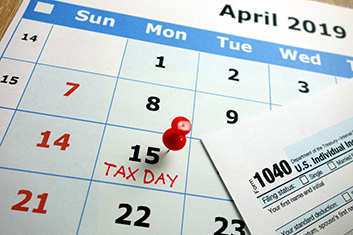 In 2018, the government attempted to “simplify” the tax-filing process by drastically shortening Form 1040. The result was six new schedules that created a lot of confusion. Now the IRS is attempting to ease some of that pain by revising the form and removing some schedules. Will it help? Here is what you need to know:
In 2018, the government attempted to “simplify” the tax-filing process by drastically shortening Form 1040. The result was six new schedules that created a lot of confusion. Now the IRS is attempting to ease some of that pain by revising the form and removing some schedules. Will it help? Here is what you need to know:
- More information on the main form. To make it easier for the IRS to match pertinent information across related tax returns, new fields have been added on the main Form 1040. For example, there’s now a spot for your spouse’s name if you choose the married filing separate status. In addition, there’s a separate line for IRA distributions to more clearly differentiate retirement income.
- 3 schedules are gone. What was your favorite memory of Schedules 4, 5 and 6? Was it the unreported Social Security tax on Schedule 4? Or the credit for federal fuels on Schedule 5? While those schedules will no longer exist, those lines (and many others) have found a new home on one of the first three schedules. Less paperwork, but still the same amount of information.
- You can keep your pennies! For the first time, the IRS is eliminating the decimal spaces for all fields. While reporting round numbers has been common practice, it’s now required.
- Additional changes on the way. The current versions of Form 1040 and Schedules 1, 2 and 3 are in draft form and awaiting comments on the changes. Because of the importance of the 1040, the IRS is expecting to make at least a few updates in the coming weeks (or months) before they consider it final. Stay tuned for more developments.
How to prepare for the changes
The best way to prepare is to be aware that 1040 changes are coming. The information required to file your taxes will remain the same, but some additional hunting will be necessary to find the shifting lines and fields on the modified form.
Remember, changes bring uncertainty and potential for delays, so getting your tax documents organized as early as possible will be key for a timely tax-filing process.
Another year has come to an end and we would like to take the time to remind you of Form 1099 reporting requirements and changes to filing deadlines.
Certain payments made in the course of business are required to be reported on the appropriate Form 1099. The type of 1099 filed depends on the type and amount of the business expenditure. Some of the most common expenditures requiring a 1099 are listed below:
| Payments for: | Equal to or Exceeding: | Form: |
| Dividends | $ 10 | 1099-DIV |
| Interest (generally) | $ 10 | 1099-INT |
| Royalties | $ 10 | 1099-MISC |
| Liquidating distributions | $600 | 1099-DIV |
| Interest (paid in the course of business) | $600 | 1099-INT |
| Fees paid for services | $600 | 1099-MISC |
| Commissions | $600 | 1099-MISC |
| Prizes and awards | $600 | 1099-MISC |
| Rents | $600 | 1099-MISC |
Note: Generally, payments made to a corporation are not required to be reported on a form 1099. However, there are some exceptions such as attorney fees.
A copy of the 1099 is required to be postmarked to the recipient and the IRS by January 31, 2017. Failure to correctly file the required 1099’s within the due dates can result in penalties of up to $260 per return (based on when filed) with a maximum of $1,059,500 for each year.
In addition to the above mentioned requirements, business taxpayers will be required to answer two questions on their 2016 income tax returns: (1) Did you make any payments in 2016 that would require you to file Form 1099(s)? (2) If yes, did you file the required Form 1099(s)?
In order to properly fill out the required forms, you will need to obtain information from each person to whom you make qualifying payments. Form W-9 is used for this purpose and can be obtained by going to http://www.irs.gov/pub/irs-pdf/fw9.pdf.
The information above relates to the most common types of transactions and circumstances.